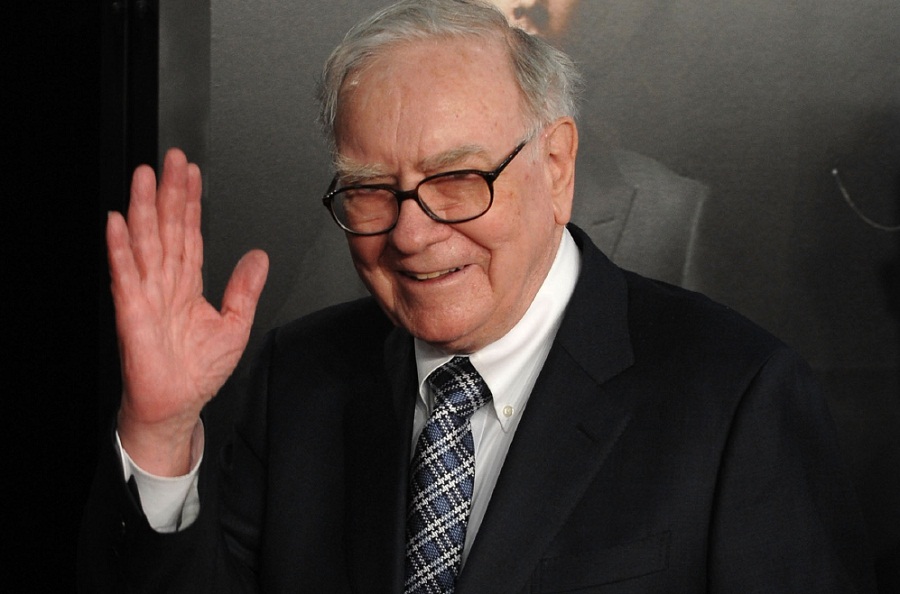Whether you're a home buyer considering a mortgage, or an executive weighing a takeover, the 85-year-old billionaire has advice for anyone looking to live a more rational, financially successful life.
For anyone wondering, “What would Warren Buffett do?” the 85-year-old billionaire has given plenty of advice in his public remarks and in annual letters to Berkshire Hathaway Inc. shareholders. It doesn't matter whether you're a home buyer considering a mortgage, or an executive weighing a takeover; he's got something for just about anyone looking to live a more rational, financially successful life.
There's also a growing catalog of no-nos that Mr. Buffett has handed down to help investors, corporate managers and his own employees avoid mistakes. Here is a review of “What Buffett wouldn't do” — and you probably shouldn't, either.
INVESTING
Don't be too fixated on daily moves in the stock market: "Games are won by players who focus on the playing field — not by those whose eyes are glued to the scoreboard. If you can enjoy Saturdays and Sundays without looking at stock prices, give it a try on weekdays." (from letter published in 2014)
Don't get excited about your investment gains when the market is climbing: “There's no reason to do handsprings over 1995's gains. This was a year in which any fool could make a bundle in the stock market. And we did.” (1996)
Don't be distracted by macroeconomic forecasts: “The cemetery for seers has a huge section set aside for macro forecasters. We have in fact made few macro forecasts at Berkshire, and we have seldom seen others make them with sustained success.” (2004)
Don't limit yourself to just one industry: “There's no rule that you have to invest money where you've earned it. Indeed, it's often a mistake to do so: Truly great businesses, earning huge returns on tangible assets, can't for any extended period reinvest a large portion of their earnings internally at high rates of return.” (2008)
Don't get taken by formulas: “Investors should be skeptical of history-based models. Constructed by a nerdy-sounding priesthood using esoteric terms such as beta, gamma, sigma and the like, these models tend to look impressive. Too often, though, investors forget to examine the assumptions behind the symbols. Our advice: Beware of geeks bearing formulas.” (2009)
Don't be short on cash when you need it most: "We will never become dependent on the kindness of strangers … We will always arrange our affairs so that any requirements for cash we may conceivably have will be dwarfed by our own liquidity." (2010)
Don't wager against the U.S. and its economic potential: “Who has ever benefited during the past 238 years by betting against America? If you compare our country's present condition to that existing in 1776, you have to rub your eyes in wonder … We will regularly grumble about our government. But, most assuredly, America's best days lie ahead.” (2015)
MANAGEMENT
Don't beat yourself up over wrong decisions; take responsibility for them: "Agonizing over errors is a mistake. But acknowledging and analyzing them can be useful, though that practice is rare in corporate boardrooms ... When it comes to corporate blunders, CEOs invoke the concept of the Virgin Birth.” (2001)
Don't have mandatory retirement ages: “At the Harvard Business School last year, a student asked me when I planned to retire and I replied, 'About five to 10 years after I die.'” (1992)
“Don't ask the barber whether you need a haircut” because the answer will be what's best for the man with the scissors. A CEO is no more likely to get an impartial opinion if he asks outside advisers whether to proceed with a deal, as “friendly investment bankers will reassure him as to the soundness of his actions.” (1983)
Don't dawdle: “When a problem exists, whether in personnel or in business operations, the time to act is now … The time to have considered — and improved — the reliability of New Orleans' levees was before Katrina.” (2006)
Don't interfere with great managers: “At Berkshire, we do not tell .400 hitters how to swing.” (1994)
Don't succumb to the attitudes that undermine businesses: “My successor will need one other particular strength: the ability to fight off the ABCs of business decay, which are arrogance, bureaucracy and complacency. When these corporate cancers metastasize, even the strongest of companies can falter.” (2015)
Don't be greedy about compensation, if you're my successor: “It's important that neither ego nor avarice motivate him to reach for pay matching his most lavishly-compensated peers, even if his achievements far exceed theirs.” (2015)
“Don't worry about my health,” because so much of the company's success is tied to reinsurance lieutenant Ajit Jain. “Worry about his.” (2001)







